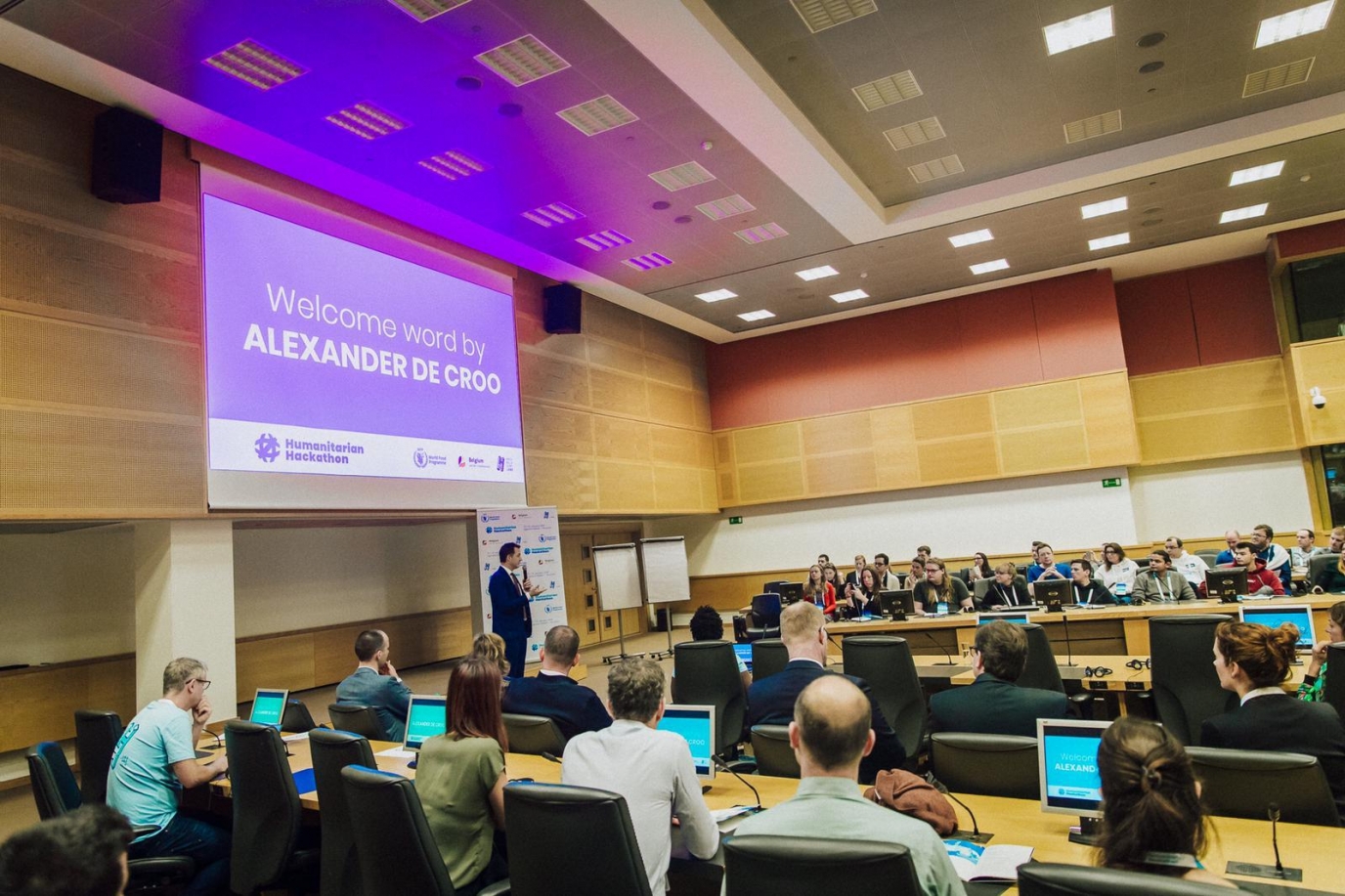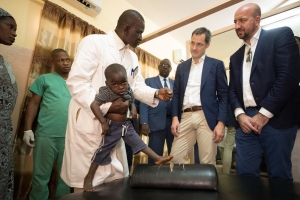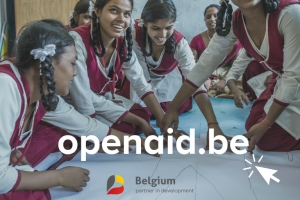Minister De Croo and WFP launch the humanitarian hackathon to find innovative solutions tackling hunger
Over 200 technology and innovation champions from all over the world are joining a two-day humanitarian hackathon in Brussels to foster innovative ideas and build new prototypes that may transform aid delivery and help eradicate hunger. The hackathon is an initiative of Deputy Prime Minister and Minister for Development Cooperation Alexander De Croo, together with the UN World Food Programme (WFP) and Hack Belgium Labs. This Hackathon is dedicated to cutting-edge solutions addressing the most pressing humanitarian challenges.
 Minister De Croo and WFP launch the humanitarian hackathon to find innovative solutions tackling hunger
Minister De Croo and WFP launch the humanitarian hackathon to find innovative solutions tackling hunger“Innovation saves lives. As a major aid donor, Belgium has been consistently supporting innovative projects to make emergency response more efficient. The Humanitarian Hackathon will help us develop new, viable solutions to boost the effectiveness of global humanitarian action. This is timely, at a moment when the need for humanitarian aid is reaching record levels,” said Alexander De Croo.
The Hackathon will bring together participants from humanitarian organizations, start-ups, large companies, donor institutions, NGOs and academia, including the Food and Agriculture Organization of the United Nations, the UN Refugee Agency (UNHCR), Médecins Sans Frontières, Oxfam, BNP Paribas Fortis, GSMA, Mondelez, Catholic University of Leuven and many others. They will form teams, aiming to address one of five critical challenges related to humanitarian access, data management, climate change, market opportunities for smallholder farmers and emergency response. These challenges are particularly timely and important in the context of massive global hunger, which is again on the rise after decades of decline, triggered by conflict and climate change. Finding new, efficient ways to deliver food assistance is paramount to alleviate the suffering of 821 million people who go to bed hungry each night.
“We need to harness the transformative power of technology and look for innovative solutions to address the immense challenges faced by humanitarians in sudden on-set emergencies, hard-to-reach areas and regions devastated by climate disasters. Thanks to the commitment and funding of the Belgian government, the Humanitarian Hackathon has gathered the most brilliant minds from various sectors to find solutions, with the potential to exponentially accelerate our quest to making a world with Zero Hunger a reality,” said Enrica Porcari, WFP’s Chief Information Officer, Director of the Technology Division and Chair of the Emergency Telecommunications Cluster.
The Hackathon teams will tackle the five challenges either through Tech Track, focusing on developing prototypes using the latest technologies, or Connect Track, which will aim to combine know-how and resources from multiple stakeholders. They will be supported by humanitarian and technical experts from WFP and other organizations.
“We’ve seen time and time again that a genuine, significant purpose is the foundation for a successful innovation event. Purpose brings the right people to the table, purpose gets them to work through the night, and to deliver their best work. And we see tangible proof that the purpose behind Humanitarian Hackathon is something exceptional: knowledgeable, motivated people are traveling across half the planet to be here. Response to the event has been nothing short of spectacular, both from the global humanitarian community and from the Belgian startups and mature companies,” said Leo Exter, Chief Energizer and Co-founder at Hack Belgium Labs.
At the end of the second day of the event, the teams will pitch their ideas and prototypes to a jury composed of Belgian government experts, aiming to secure potential financial, technical and in-kind support for their projects. The best scalable and applicable proposals will have the opportunity to be reviewed by WFP’s Innovation Accelerator, which fosters new solutions to global hunger.
The Government of Belgium has been one of WFP’s key partners in the humanitarian innovation space, funding numerous projects leveraging technology to save more lives and create better opportunities for the most vulnerable communities affected by hunger and malnutrition. This partnership has allowed WFP to explore the use of drones in emergencies and financed a vital blockchain pilot enabling more efficient cash transfers to Syrian refugees in Jordan.


